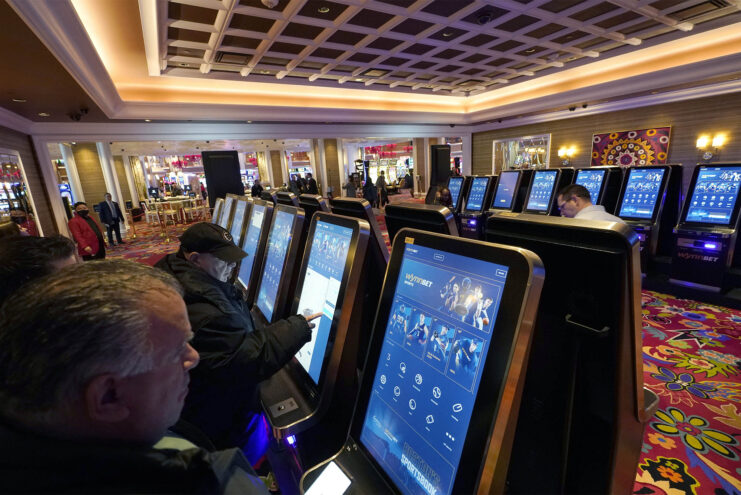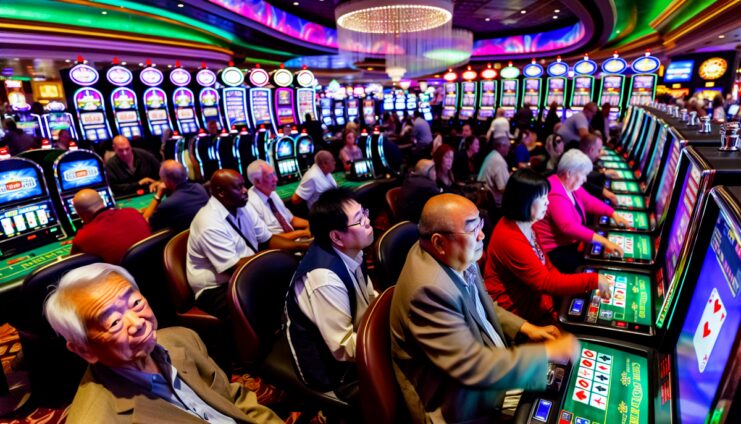Casinos aren’t just about bright lights and the clink of slot machines; they’re significant economic engines. In areas where they sprout, these establishments can be the heartbeat of local economies. Typically, casinos attract tourists in droves, promising not just gaming pleasure but a spectrum of entertainment options.
This influx of visitors translates to spending, not just within the casino but in surrounding businesses like hotels, restaurants, and shops.
However, the economic contributions of casinos extend beyond tourism. These establishments create numerous job opportunities. From dealers to hotel staff, from security to management, casinos are labor-intensive operations.
Such employment opportunities can be particularly vital in regions where job options might be limited. The salaries and wages paid to casino employees circulate back into the community, fueling other local businesses and services.
Moreover, casinos are often significant sources of tax revenue. This revenue can fund essential community services like schools, infrastructure, and healthcare. Some regions strategically leverage this tax money to spur further economic development, reinvesting in other sectors that can benefit the community at large.
Community Impacts and Perceptions

The relationship between casinos and communities isn’t just about economics; it’s also about perception and impact. How a community perceives a casino can vary widely, influenced by cultural, social, and moral viewpoints. While some see it as a source of economic salvation, others may view it as a potential source of social problems.
One aspect of this relationship is how the presence of a casino affects local businesses. On the one hand, casinos can draw tourists who might also patronize local shops and restaurants. On the other hand, a casino’s comprehensive entertainment offerings can sometimes overshadow local businesses, drawing away their clientele.
Social implications also play a crucial role. While casinos such as SPY-Casino create jobs, they can also be seen as centers for gambling addiction and related social issues. This dichotomy often puts casinos and communities in a delicate balance, necessitating responsible management and community engagement from casino operators.
Sustainable Casino Tourism
Sustainable tourism is a concept that has gained significant traction, and it applies to casino tourism as well. This approach seeks a balance, ensuring that the economic benefits of casinos don’t come at the expense of the local community or environment.
Sustainable casino tourism means developing casinos as part of a broader, more diverse local economy. It emphasizes the importance of ensuring that casinos don’t cannibalize local businesses but rather complement them. This approach can include partnerships with local businesses, where casinos actively promote local culture and services.
Additionally, sustainable casino tourism involves implementing environmentally friendly practices. This can range from reducing energy consumption to implementing waste management strategies. By doing so, casinos can demonstrate their commitment to the well-being of their host communities.
The Ripple Effect on Local Economy

The impact of casinos on local economies can be likened to a ripple effect. Initially, the most direct economic benefits are seen in the employment and revenue generated by the casino itself. But these benefits extend outward.
Local suppliers and businesses often experience increased demand, thanks to the casino and its visitors. This can lead to more jobs and higher income in various sectors, from food services to entertainment. Real estate may also feel the impact, as the demand for housing and commercial spaces can increase.
However, it’s important to note that this ripple effect can vary. In some cases, the presence of a casino can inflate prices, making living costs higher for local residents. Therefore, it’s crucial for local authorities and casino operators to work together to manage these effects and ensure that the benefits are distributed as widely and fairly as possible.
Regulation and Responsible Gaming
Regulation plays a pivotal role in the casino industry. Effective regulation ensures that casinos operate fairly and transparently, which in turn helps to maintain public trust and confidence. It also safeguards against potential negatives, such as gambling addiction and criminal activities.
Responsible gaming is another critical aspect. Casinos, with the support of regulations, are increasingly adopting measures to promote responsible gaming. These include providing information on the risks of gambling, offering tools for self-exclusion, and training staff to recognize and respond to signs of problem gambling.
Adapting to Technological Advancements

The casino industry, like many others, is not immune to the winds of technological change. The rise of online gambling platforms presents both a challenge and an opportunity for traditional casinos. While online gambling can draw away potential customers from physical casinos, it also opens up new avenues for growth and innovation.
Physical casinos might explore integrating online experiences, offering virtual reality gambling, or developing apps that allow for remote gaming while still promoting their unique brand and experience. This adaptation isn’t just about staying relevant; it’s about enhancing the customer experience and tapping into new markets.
Moreover, technology can be leveraged to improve operational efficiency within casinos, from smart energy management to data analytics for better customer service. Embracing these technologies can lead to cost savings and improved customer experiences, which in turn can have a positive impact on the local economy.
Responsible Growth and Expansion
As the casino industry looks to grow and expand, responsible growth becomes paramount. This involves considering the environmental impact of new casino developments, ensuring that they don’t strain local resources or disrupt ecological balances.
Responsible growth also means considering the social implications of casino expansion. This includes evaluating how new developments will affect local communities in terms of employment, infrastructure needs, and social services.
By adopting a responsible approach to growth, casinos can ensure that they are adding value to the communities they are part of, rather than imposing undue burdens.
Summary
In conclusion, the relationship between casinos and communities is a dynamic and evolving one. It’s characterized by both opportunities and challenges. For this relationship to be fruitful, it requires a balanced approach that considers economic, social, cultural, and environmental factors.
Through responsible management, community engagement, and sustainable practices, casinos and communities can achieve mutual economic prosperity and create a harmonious coexistence that benefits all stakeholders.
Related Posts:
- What Do Sea Grapes Taste Like? Discover Their Unique…
- Play and Win - Canada's Best Online Casinos with the…
- Understanding The Technological Requirements for…
- The Ultimate Guide to Sea Urchin Taste: What to…
- Unmasking the Dark Side of Otters: Surprising and…
- The Language of Love: Signs He's Falling and How to…












